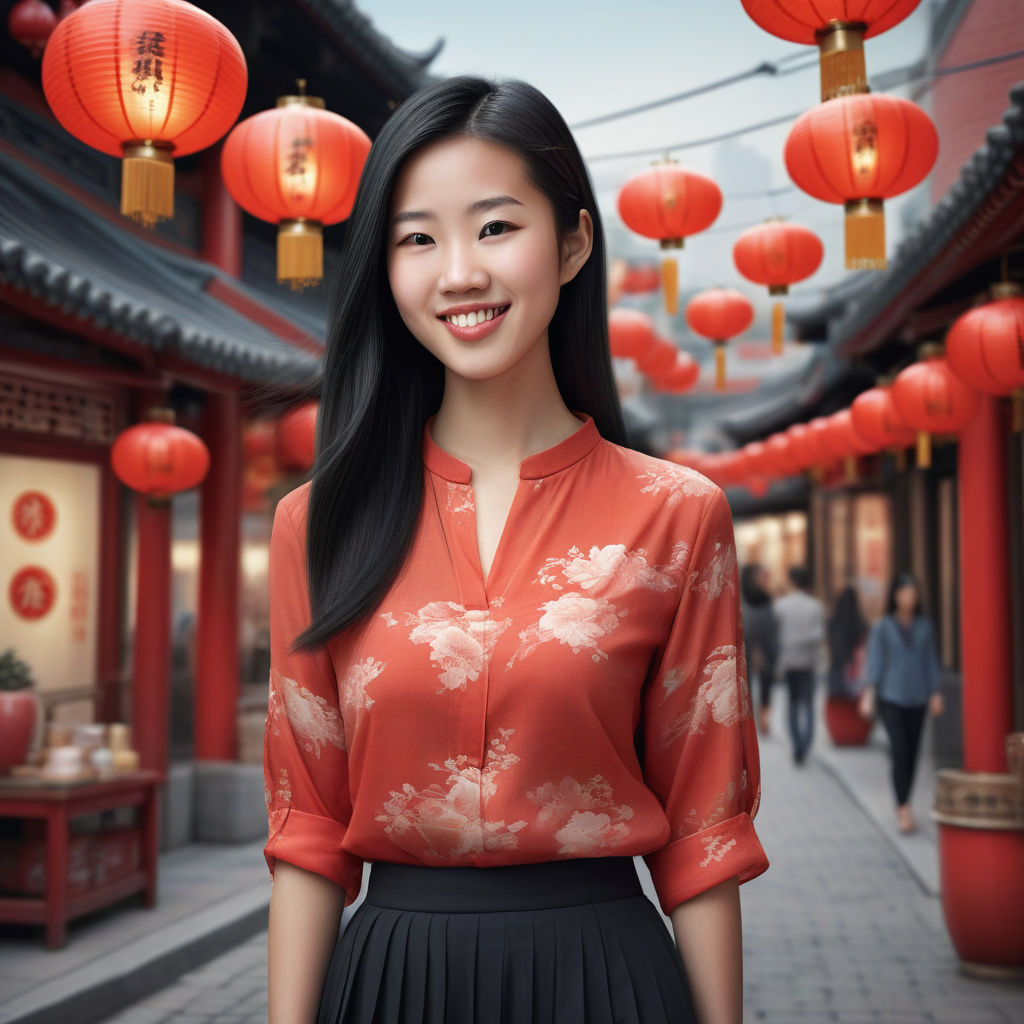Cultural Background
Chinese women are deeply rooted in a cultural heritage that blends Confucianism, Taoism, and Buddhism. These traditions emphasize family honor, respect for elders, and community harmony, yet modern influences are increasingly visible.
Example: A Chinese woman might practice traditional calligraphy and celebrate festivals like the Mid-Autumn Festival while also binge-watching the latest Netflix series.
Importance: 8/10
Attitude Towards Life
Chinese women often exhibit a pragmatic and resilient attitude towards life. Balancing traditional expectations with modern aspirations, they strive for personal and professional growth.
Example: Juggling a demanding job while managing household responsibilities, yet finding time for yoga or a girls’ night out.
Importance: 8/10
Social Views
While traditional views persist, especially in rural areas, urban Chinese women are increasingly progressive, advocating for gender equality and social reforms.
Example: Participating in social movements and advocating for women’s rights, while also respecting traditional family roles and customs.
Importance: 7/10
Family Values
Family remains central, with a strong sense of duty and responsibility. Chinese women often play a key role in maintaining family bonds and caring for both immediate and extended family members.
Example: Balancing a career with taking care of aging parents and ensuring children receive a good education.
Importance: 9/10
Marriage Views
Marriage is significant, with societal pressure to marry and have children, though perspectives are evolving. Many women now seek partners who support their career and personal goals.
Example: A professional woman prioritizing her career before settling down, yet feeling the societal nudge to marry by a certain age.
Importance: 8/10
Views on Sexuality
Discussions about sexuality can be sensitive, though younger generations are becoming more open. There's a growing awareness of sexual health and rights.
Example: Younger women might attend sexual health workshops and seek information online, while older generations may approach the topic with more reservation.
Importance: 6/10
Friendship Views
Friendship is cherished, with a strong emphasis on trust, loyalty, and mutual support. Social networks often provide significant emotional and practical support.
Example: Regularly meeting friends for dinners, shopping, or travel, forming tight-knit circles that offer support and companionship.
Importance: 8/10
Communication Views
Communication often emphasizes harmony and respect, with indirect expressions and non-verbal cues playing a significant role. However, younger women are more direct and assertive.
Example: Using subtle hints or non-verbal gestures to convey messages, especially in delicate situations, while younger women might be more straightforward.
Importance: 7/10
Work Views
Career aspirations are increasingly important. Chinese women strive for professional success and financial independence, often balancing work with family commitments.
Example: Pursuing higher education and career advancement while managing family responsibilities, often facing societal expectations to excel in both arenas.
Importance: 9/10
Money Views
Financial security is highly valued. Chinese women are becoming more financially savvy, focusing on savings, investments, and economic independence.
Example: Actively managing personal finances, investing in stocks or property, and seeking financial advice to ensure long-term stability.
Importance: 8/10
In summary, Chinese women navigate a complex blend of traditional values and modern influences, placing high importance on family, career, and financial security. Their perspectives are shaped by a desire for personal fulfillment, stability, and harmonious relationships in both personal and professional spheres.
